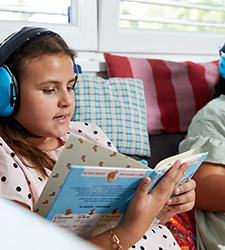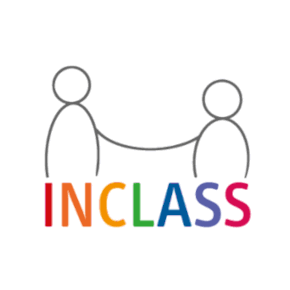Projects

GoThink
Das Projekt untersucht, wie das Ausführen von ikonischen Gesten während der Satzverarbeitung das logisch-abstrakte Denken bei Kindern im Grundschulalter unterstützt, und welche Rolle dabei das Arbeitsgedächtnis spielt. Der inhaltliche Fokus liegt auf der Verarbeitung von Sätzen mit dem Zahlausdruck „einige“, in denen verschiedene Mengen in Bezug zueinander gesetzt werden (“einige”,…, “alle”). Die Ergebnisse des Projekts bieten Anknüpfungspunkte für Förderkontexte im Grundschulalter, die
GUIDEPREP
The Europe-wide project ‘Growing Up in Digital Europe’ (GUIDE) analyses the success factors for the development of well-being in a digital world. Over a period of about 25 years, two birth cohorts (infants and school-age children) and their parents will be systematically surveyed. The upstream project GUIDEPREP (‘GUIDE Preparatory Phase’) will develop the necessary research infrastructure for the GUIDE panel between 2022 and 2026.

Hate Crime
The project Hate Crime explores bias-motivated violence from an interdisciplinary perspective (law, ethics and psychology).

Hector
Hector Children’s Academies are extracurricular institutions that offer support to gifted children under the age of ten; they endorse a holistic approach. The aim of the project is a scientific monitoring of the support program. This includes the support of the implementation, the evaluation of the courses offered and the investigation of related scientific questions.

IGEL
The project IGEL aims at evaluating three different teaching approaches (scaffolding instructional discourse, formative assessment, and peer-assisted learning) in primary school science education.

iLearn
This project evaluates the potential of computerized formative assessment to support reading acquisition of children with reading difficulties. Formative assessment enables teachers to adapt their teaching methods to the individual learning progress of their students.

INCLASS
The INCLASS project is developing an application-oriented set of tools for the inclusion of autistic children: a training platform for teachers, a self-assessment tool for the (self-)evaluation of competences in teaching children on the autism spectrum and a smartphone app for the identification of individual barriers.

InSe
This project investigates the extent to which tests and test items are capable of capturing effects of instruction.

InSel
The InSel project is investigating how well teachers can recognise internalising symptoms in their students. In addition, a psychoeducational intervention for teachers regarding internalising behavioural problems in students is being developed and tested.

IPhaMat
The project IPhaMat examined how students of mathematics for primary schools, teachers in the preparatory service, and practising primary school teachers take up an innovative teaching approach to cooperative learning.